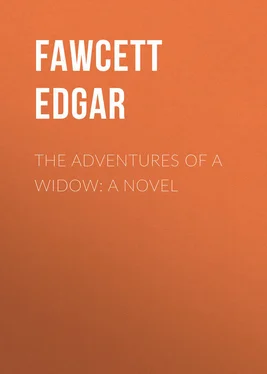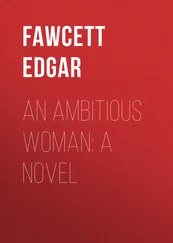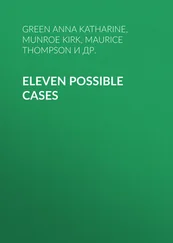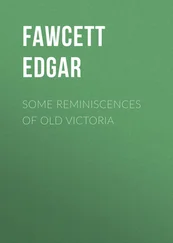Edgar Fawcett - The Adventures of a Widow - A Novel
Здесь есть возможность читать онлайн «Edgar Fawcett - The Adventures of a Widow - A Novel» — ознакомительный отрывок электронной книги совершенно бесплатно, а после прочтения отрывка купить полную версию. В некоторых случаях можно слушать аудио, скачать через торрент в формате fb2 и присутствует краткое содержание. Жанр: foreign_antique, foreign_prose, на английском языке. Описание произведения, (предисловие) а так же отзывы посетителей доступны на портале библиотеки ЛибКат.
- Название:The Adventures of a Widow: A Novel
- Автор:
- Жанр:
- Год:неизвестен
- ISBN:нет данных
- Рейтинг книги:4 / 5. Голосов: 1
-
Избранное:Добавить в избранное
- Отзывы:
-
Ваша оценка:
- 80
- 1
- 2
- 3
- 4
- 5
The Adventures of a Widow: A Novel: краткое содержание, описание и аннотация
Предлагаем к чтению аннотацию, описание, краткое содержание или предисловие (зависит от того, что написал сам автор книги «The Adventures of a Widow: A Novel»). Если вы не нашли необходимую информацию о книге — напишите в комментариях, мы постараемся отыскать её.
The Adventures of a Widow: A Novel — читать онлайн ознакомительный отрывок
Ниже представлен текст книги, разбитый по страницам. Система сохранения места последней прочитанной страницы, позволяет с удобством читать онлайн бесплатно книгу «The Adventures of a Widow: A Novel», без необходимости каждый раз заново искать на чём Вы остановились. Поставьте закладку, и сможете в любой момент перейти на страницу, на которой закончили чтение.
Интервал:
Закладка:
"I am afraid you will find them so."
"Are they to be imported?"
"Oh, no. That will not be necessary."
"I see; they're domestic products."
"Quite so. In this great city – filled with so much energy, so much re-action against the narrow feudalisms of Europe – I am very certain of finding them." She paused for a moment, and seemed to employ a tacit interval for the accumulation of what she next said. "I shall not be entirely unassisted in my search, either."
A cunning twinkle became manifest in the brown eyes of her listener. He drew a long breath. "Ah! now we get at the root of the matter. There's a confederate – an accomplice, so to speak."
"I prefer that you should not allude to my assistant in so rude a style. Especially as, in the first place, you have never met him, and, in the second, he is a person of the most remarkable gifts."
"Is there any objection to my asking his name? Or is it still a dark mystery?"
She laughed at this, as if she thought it highly diverting. "My dear cousin," she exclaimed, "how absurd you can be at a pinch! What on earth should make the name of Mr. Kindelon a dark mystery?"
"Um-m-m. Somebody you met abroad, then?"
"Somebody I met on the steamer, while returning."
"I see. An Englishman?"
"A gentleman of Irish birth. He has lived in New York for a number of years. He knows a great many of the intellectual people here. He has promised to help me in my efforts. He will be of great value."
Courtlandt rose. "So are your spoons, Pauline," he said rather gruffly, not at all liking the present drift of the information. "Take my advice, and lock them up when you give your first salon ."
III
Pauline had not been long in her native city again before she made the discovery that a great deal was now socially expected of her. The news of her return spread abroad with a rapidity more suggestive of bad than of good tidings; her old acquaintances, male and female, flocked to the Bond Street house with a most loyal promptitude. The ladies came in glossy coupés and dignified coaches, not seldom looking about them with dilletante surprise at the mercantile glare and tarnish of this once neat and seemly crossway, as they mounted Mrs. Varick's antiquated stoop. Most of them were now married; they had made their market, as Pauline's deceased mother would have said, and it is written of them with no wanton harshness that they had in very few cases permitted sentiment to enact the part of salesman. There is something about the fineness of our republican ideals (however practice may have determinedly lowered and soiled them) that makes the mere worldly view of marriage a special provocation to the moralist. Regarded as a convenient mutual barter in Europe, there it somehow shocks far less; the wrong of the grizzled bridegroom winning the young, loveless, but acquiescent bride bears a historic stamp; we recall, perhaps, that they have always believed in that kind of savagery over there; it is as old as their weird turrets and their grim torture-chambers. But with ourselves, who broke loose, in theory at least, from a good many tough bigotries, the sacredness of the marriage state presents a much more meagre excuse for violation. It was not that the husbands of Pauline's wedded friends were in any remembered instance grizzled, however; they were indeed, with few exceptions, by many years the juniors of her own dead veteran spouse; but the influences attendant upon their unions with this or that maiden had first concerned the question of money as a primary and sovereign force, and next that of name, prestige, or prospective elevation. These young brides had for the most part sworn a much more sincere fidelity to the carriages in which they now rode, and the pretty or imposing houses in which they dwelt, than to the important, though not indispensable, human attachments of such prized commodities.
Pauline found them all strongly monotonous; she could ill realize that their educated simpers and their regimental sort of commonplace had ever been potent to interest her. One had to pay out such a small bit of line in order to sound them; one's plummet so soon struck bottom, as it were. She found herself silently marvelling at the serenity of their contentment; no matter how gilded were the cages in which they made their decorous little trills, what elegance of filigree could atone for the absence of space and the paucity of perches?
The men whom she had once known and now re-met pleased her better. They had, in this respect, the advantage of their sex. Even when she condemned them most heartily as shallow and fatuous, their detected admiration of her beauty or of their pleasure in her company won for them the grace of a pardoning afterthought. They were still bachelors, and some of them more maturely handsome bachelors than when she had last looked upon them. They had niceties and felicities of attitude, of intonation, of tailoring, of boot or glove, to which, without confessing it, she was still in a degree susceptible.
But she did not encourage them. They were not of her new world; she had got quite beyond them. She flattered herself that she always affected them as being gazed down upon from rather chilly heights. She insisted on telling herself that they were much more difficult to talk with than she really found them. This was one of the necessities of her conversion; they must not prove agreeable any longer; it was inconsequent, untenable, that they should receive from her anything but a merely hypocritic courtesy. She wanted her contempt for the class of which they were members to be in every way logical, and so manufactured premises to suit its desired integrity. Meanwhile she was much more entertaining than she knew, and treated Courtlandt, one day, with quite a shocked sternness for having informed her that these male visitors had passed upon her some very admiring criticisms.
"I have done my best to behave civilly," she declared. "I was in my own house, you know, when they called. But I cannot understand how they can possibly like me as they no doubt used to do! I would much rather have you bring me quite a contrary opinion, in fact."
"If you say so," returned Courtlandt, with his inimitable repose, "I will assure them of their mistake and request that they correct it."
Pauline employed no self-deception whatever in the acknowledgment of her real feelings toward Courtlandt. She cherished for him what she liked to tell herself was an inimical friendliness. In the old days he had never asked her to marry him, and yet it had been plain to her that under favoring conditions he might have made her this proposal. She was nearly certain that he no longer regarded her with a trace of the former tenderness. On her own side she liked him so heartily, notwithstanding frequent antagonisms, that the purely amicable nature of this fondness blurred any conception of him in the potential light of a lover.
But, indeed, Pauline had resolutely closed her eyes against the possibility of ever again receiving amorous declaration or devotion. She had had quite enough of marriage. Her days of sentiment were past. True, they had never actually been, but the phantasmal equivalent for them had been, and she now determined upon not replacing this by a more accentuated experience. Her path toward middle life was very clearly mapped out in her imagination; it was to be strewn with nicely sifted gravel and bordered by formally clipped foliage. And it was to be very straight, very direct; there should be no bend in it that came upon a grove with sculptured Cupid and rustic lounge. The "marble muses, looking peace" might gleam now and then through its enskirting boskage, but that should be all. Pauline had read and studied with a good deal of fidelity, both during her marriage and after her widowhood. She had gone into the acquisition of knowledge and the development of thought as some women go into the intoxication of a nervine. Her methods had been amateurish and desultory; she had not been taught, she had learned, and hence learned ill. "The modern thinkers," as she called them, delighted her with their liberality, their iconoclasm. She was in just that receptive mood to be made an extremist by their doctrines, the best of which so sensibly warn us against extremes. Her husband's memory, for the sake of decency if for no other reason, deserved the reticence which she had shown concerning it. He had revealed to her a hollow nature whose void was choked with vice, like some of those declivities in neglected fields, where the weed and the brier run riot. The pathos of her position, in a foreign land, with a lord whose daily routine of misconduct left her solitary for hours, while inviting her, had she so chosen, to imitate a course of almost parallel license, was finally a cogent incentive toward that change which ensued. The whole falsity of the educational system which had resulted in her detested marriage was slowly laid bare to her eyes by this shocking and salient example of it.
Читать дальшеИнтервал:
Закладка:
Похожие книги на «The Adventures of a Widow: A Novel»
Представляем Вашему вниманию похожие книги на «The Adventures of a Widow: A Novel» списком для выбора. Мы отобрали схожую по названию и смыслу литературу в надежде предоставить читателям больше вариантов отыскать новые, интересные, ещё непрочитанные произведения.
Обсуждение, отзывы о книге «The Adventures of a Widow: A Novel» и просто собственные мнения читателей. Оставьте ваши комментарии, напишите, что Вы думаете о произведении, его смысле или главных героях. Укажите что конкретно понравилось, а что нет, и почему Вы так считаете.












